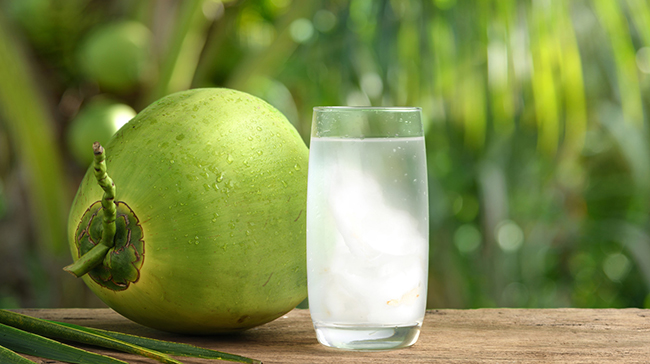Water

When your child says they’re thirsty, always offer water first.
This is because water is essential for health and necessary for countless important processes in your child’s body, including temperature regulation and organ function.
In fact, relative to body weight, children have a higher water requirement than adults due to their rapidly growing bodies and higher metabolic rate.
Unlike many other beverages, water won’t provide liquid calories, making it less likely that your child will feel full and refuse solid food. This can be especially important if you have a picky eater.
Moreover, adequate water intake is associated with healthy body weight, reduced risk of tooth decay, and improved brain function in children.
Additionally, dehydration can negatively impact your child’s health in multiple ways, potentially impairing brain function, causing constipation, and leading to fatigue.
Fresh Fruit Juices
To improve your child’s palate without adding extra sugar and calories, parents can make fruit and vegetable juices at home by combining different produce to find flavors your child will love. This way, your child will also get a boost of nutrients from natural sources. Some healthy drink options for children that parents can easily make at home include: pineapple and mint; cucumber and watermelon; blueberry and raspberry; strawberry and lemon; orange and lime, etc., mixed with water.
Coconut Water

Coconut water, though containing calories and sugar, is still a healthy choice. It’s packed with important nutrients for children, including vitamins C, magnesium, and potassium. It also provides electrolytes to replenish fluids lost through sweat during your child’s active play. This makes coconut water an excellent choice for kids.
Coconut water is especially beneficial when your child is ill, particularly if they need to rehydrate after diarrhea or vomiting. Note that pure, unsweetened coconut water is the best choice for children.
Fresh Fruit Smoothies
Smoothies are a great way to combine fruits, vegetables, and other healthy ingredients into a nutritious drink for kids. Store-bought smoothies often contain a lot of added sugar and low-quality ingredients, so it’s best to make them at home with nutritious ingredients.
Smoothies can be a great way to sneak in extra nutrition for picky eaters. Many green vegetables like spinach, broccoli, and moringa can be blended into a naturally sweet smoothie that your child will enjoy. Parents can also add healthy ingredients like unsweetened milk, cacao powder, unsweetened coconut, avocado, or flax seeds. Since smoothies are high in calories, they should be offered as a meal rather than a snack.
Plain Milk

While children may enjoy flavored milk drinks like chocolate or strawberry milk, plain milk is the healthiest and most appropriate choice. It’s highly nutritious, providing protein, calcium, phosphorus, and magnesium – all essential for bone health and particularly important for growing children. Additionally, milk contains vitamin D, which is crucial for children’s growth and development.
Some people may opt for skim milk, but whole milk with higher fat content can be beneficial for young children. Children’s fat requirements are typically higher than those of adults due to their increasing metabolic rate, so fat is necessary for brain development and overall growth.
Plant-Based Milk
For children who are lactose intolerant, plant-based milk is an excellent alternative.
Plant-based milk options include hemp, coconut, almond, cashew, rice, and soy milk.
Like dairy milk, plant-based milk can contain a lot of added sugar and artificial sweeteners, which is why it’s best to choose unsweetened varieties.
Unsweetened plant-based milk can be used on its own as a low-calorie drink or as a base for kid-friendly smoothies, oatmeal, and soups.
For example, one cup (240 ml) of unsweetened almond milk has fewer than 40 calories.
Offering low-calorie drinks with meals will reduce the likelihood of your child filling up on liquids alone. Additionally, many plant-based milk options are fortified with various vitamins and minerals and often include added nutrients like calcium, B12, and vitamin D.
The Morning Beverage Trio: A Healthy Habit or a Nighttime Toxin?
“Starting your day with a glass of warm lemon water is a healthy ritual, but drinking certain beverages in the evening can be detrimental to your health. Some drinks are best enjoyed in the morning, while others are better left for daytime consumption if you want to maintain your health and well-being.”
The Ultimate Guide to Braised Pork Belly: A Hearty and Flavorful Dish for a Cozy Rainy-Day Meal
The tantalizing flavors of braised pork belly have long been a staple in Vietnamese cuisine. This hearty dish, known as ‘thịt kho tàu’, is a flavorful masterpiece that deserves a place in your culinary repertoire. With its tender, melt-in-your-mouth meat and a rich, savory sauce, it’s a dish that demands attention. Today, we’ll guide you through the art of crafting this delicious delicacy, ensuring your taste buds embark on an unforgettable journey.





































